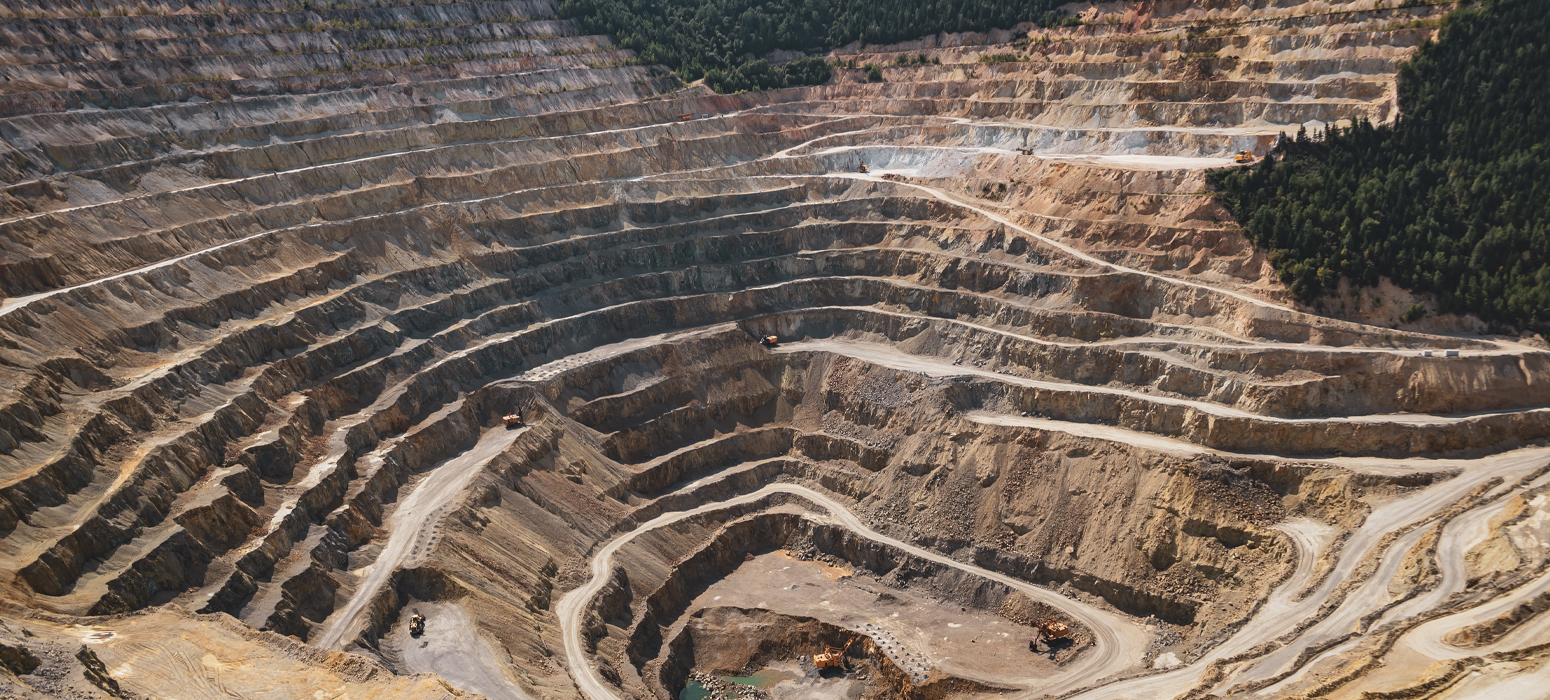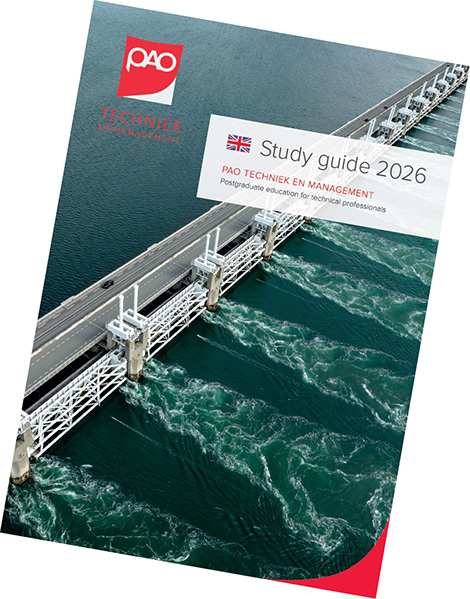Geology for engineers (CGF-G)
During this course you will learn the basic principles of geology and rock mechanics and receive practical guidelines for dealing with spatial variability and unforeseen ground conditions for soil and foundation engineering.

Learn to handle geological and geotechnical risks crucial to construction projects
This course emphasizes the importance of thorough ground investigations and effective risk management based on the site's geological history. Understand how geotechnical site features are shaped by this history, impacting the success of construction projects. Discover practical insights for designing foundations in complex geological settings, covering basics of geology and rock mechanics. Gain skills to navigate spatial variability and unexpected soil conditions in ground and foundation engineering. Taught by experienced specialists, this course is part of the CGF-courses by KIVI, offering practical knowledge for managing construction projects in diverse geological scenarios.
Module 1. Introduction geology and geology of The Netherlands (2 days)
Explore fundamental geological concepts, both large and small scale, with a focus on depositional environments and surface processes.
Module 1 emphasizes the "total geology" approach, highlighting the profound impact of geological history on built environments. Gain insights into identifying risks, optimization of ground investigations, and constructing geotechnical models based on expected geological conditions. Delve into the shallow and deeper geology of The Netherlands, covering geological formations from the Carboniferous to the Holocene. Special attention is given to Pleistocene and Holocene geology for its engineering significance in The Netherlands.
Module 2. Characteristics of rocks and engineering geological design (2 days)
Module 2 covers the distinction between rock material- and mass behavior, principles of rock mechanics, and ground mass behavior concepts. Participants learn sample testing techniques, in-situ testing, and methodologies for classifying ground behavior. Practical sessions include various laboratory tests at TU-Delft's Soil and Rock Laboratory. Topics also cover designing site investigations and addressing spatial uncertainty. Special attention is given to utilizing digital platforms for geological and geotechnical information in the Netherlands, with hands-on exercises and emphasis on geophysical survey techniques. Module 2 also addresses designing with geological expertise, emphasizing specific design aspects in which geological knowledge is crucial.
Pre-requisite: Demonstrable geology education or the Certificate of Module 1
Module 3. Engineering geological fieldwork in Belgium (1 overnight + 1 day)
One-day engineering geological fieldwork site visit in the Belgian Ardennes to improve the understanding of rock masses and geological structures. Learn how to recognize different rock types in the field, and practice identifying structural geological structures and weathering. This hands-on experience will enhance your understanding of geology and help you apply these skills in real-world engineering scenarios.
Pre-requisite: Certificate of Module 2
The importance of geology
The following topics are covered during this course:
- The importance of the total geological history and the development of a geological model as basis for site evaluation, ground investigations and foundation engineering.
- Rock mechanics: the similarities and differences with soil mechanics considered from an engineering’s point of view.
- Classification of rock and rock-masses and the use of specific laboratory tests to characterize the rock properties.
- How to approach spatial variability and ground investigations in different geological settings.
- The participants get hands-on experience with rock testing and work out case studies.
- Field visit in the Belgian Ardennes.
Intended for
Module 1 is aimed at geotechnical-, structural- and geohydrological engineers seeking expertise in geological considerations for engineering applications.
Module 2 and 3 are aimed at geologists, geotechnical-, structural- and geohydrological engineers who want to develop practical skills in site investigation techniques and geotechnical analysis for engineering projects with a strong geological component.
Module 1 and 2 can be followed separately.
This course will be taught in English.
In cooperation with KIVI (Royal Netherlands Society of Engineers).
Course leaders
This course is rated with an average of
Program manager
Why PAOTM
-
The latest post-academic knowledge and skills
-
Focused on questions that arise in a technical environment
-
Interactive and directly applicable in practice
-
Top teachers from science, research and business
Frequently asked questions
Program
- Welcome and register
- Introduction to the course
- 1. General geology (with 15 min break)
- Lunch
- 2. Geological environments
- Break
- 3. Surface processes and geological hazards
- Break
- 4. The total geology approach
- Wrap up and questions day 1
- Introduction
- 5. General geology of The Netherlands
- Break
- 6. Shallow geology of The Netherlands
- Lunch
- 7. Dinoloket/NLOG/BRO/AHN: models and data
- Break
- 8. Case study/Exercise/Game 1 (with 15min break)
- Wrap up and questions day 2
- Introduction
- 9. Mechanics of rock and soil (1) + exercise
- Break
- 10. Mechanics of rock and soil (2) + exercise
-
Lunch
afterwards to TU Delft CiTG lab
- 11. Petrography and rock classification
- Break
- 12. Laboratory tests on rock and soil
- Wrap up and questions day 3
- Introduction
- 13. Site investigations (difficult soils, rock)
- Break
- 14. Geophysical survey
- Lunch
- 15. Offshore excavation and dredging
- 16. Foundation design (piling in rock)
- Break
- 17. Tunnel design in rock masses
- Wrap up and questions day 4
- Geological fieldwork Belgian Ardennes
Course leaders
This course is rated with an average of
Frequently asked questions
Dates and locations
Below you will find an overview of the available dates and locations. You can register immediately by clicking on the 'Register' button.
Investment
- Including coffee, tea, lunch (day 3) and dinner (day 1, 2 and 4) and (digital) course material
- For participants taking part in the excursion, the price includes overnight accommodation, breakfast and a lunchbox
- Price excludes 21% VAT
Frequently asked questions
In-company
Are several employees interested in the same course, do you want to enrich knowledge with the entire team or focus on your own practice? Then an in-company course could be interesting. We are happy to think along with you about the possibilities. PAOTM has extensive experience in organizing in-company courses in many technical fields for a wide range of companies. You can choose to have an existing course organized in-company for multiple employees. However, if you have a specific organizational or departmental issue, we can also design a unique course. For every customized request, we search our network at universities, knowledge institutes and the business community for the right teachers who can provide your team with the desired knowledge. We then put together a course based on your training needs, learning needs and organizational goals.
Curious about the possibilities? Contact one of our program managers or complete the form below. We are happy to make you a suitable offer.
FAQ's
In-company request
"*" geeft vereiste velden aan
Program manager
In-company courses of PAOTM are rated with an average of
Why In-company
-
A course tailored to your specific needs
-
Get started right away with your own cases
-
Led by top teachers with the most up-to-date knowledge
-
You choose where and when: always efficient
-
The entire team trained simultaneously
-
Customization possible in all our fields
Download the Study Guide
Would you like a complete overview of all our courses and trainings? Download the digital study guide!


No start date available
No start date has been planned yet. Don't worry, you can register on our interest list. We will inform you immediately as soon as a new date is planned.
Our corporate partners
Subscribe for the newsletter
In our monthly newsletter we inform you by e-mail about courses, trainings, news and developments in the various fields of PAOTM. Select the topics of your interest!
Download the Study Guide
In addition to the course offerings, the Study Guide also contains the themes that we will further develop next year. Would you like a complete overview of our courses and training in your field(s)? Request the Study Guide and receive it digitally.










